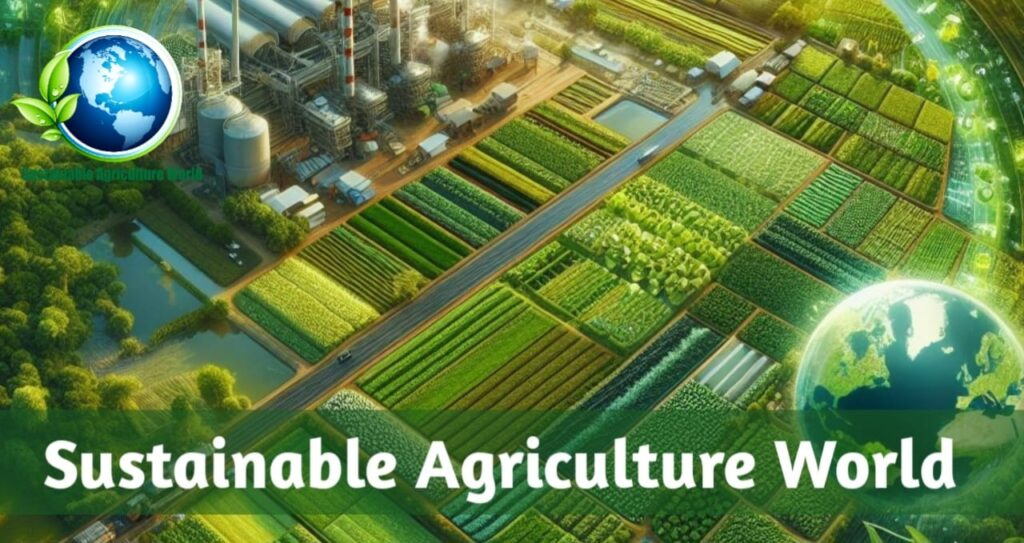
I am proud to set up this transformative platform – ” Sustainable Agriculture World“ With a deep-rooted passion for sustainable agriculture, I bring to you years of expertise as a professional consultant specializing in organic fertilizers & input project set up & production, waste management & project management. Armed with an academic background encompassing an MBA (Agri + Production & Operations), BSc in Agriculture (with Gold Medal), and Agri Business Management (with Gold Medal), Diploma in Agro Journalism, Batchelor of Law LLB. My journey has been dedicated to nurturing the green revolution.
At Sustainable Agriculture World, we are more than a platform; we are a collective of like-minded individuals working tirelessly towards a noble cause. Our mission is to educate farmers and raise awareness about sustainable agriculture practices, eco-friendly farming, organic cultivation, soil health, and overall sustainability. Together with my dedicated team, we strive to cultivate a community that values the harmony between agriculture and nature. We delve into crucial topics such as the disadvantages of chemical farming, food security, and the profound impact of organic farming on human health. Join us in this journey as we cultivate knowledge, sow awareness, and reap the rewards of a healthier, more sustainable agricultural landscape.Sow the seeds of change with Sustainable Agriculture World — where farming meets a greener tomorrow.”
Sustainable Agriculture World: Organic Farming Practices
Agriculture has become a critical focal point in our global pursuit of responsible and environmentally-friendly food production. Organic farming practices play a pivotal role in this endeavour, offering a holistic approach that balances ecological health, economic viability, and social responsibility.
Importance of Organic Farming:
Environmental Conservation:
Organic farming prioritizes soil health and biodiversity, avoiding synthetic chemicals that can harm the environment. It employs techniques like crop rotation and cover cropping to enhance soil fertility naturally.
Chemical-Free Produce:
Organic farming ensures the production of chemical-free crops, providing consumers with nutritious and wholesome food. This not only benefits human health but also contributes to reducing the overall chemical load on the ecosystem.
Water Conservation:
Organic farming practices, such as rainwater harvesting and efficient irrigation methods, contribute to water conservation. By minimizing water wastage and runoff, organic farming helps in maintaining water quality and availability.
Disadvantages of Chemical Farming:
Soil Degradation:
Chemical farming often relies on synthetic fertilizers that can degrade soil quality over time. Continuous use of these fertilizers depletes essential nutrients and disrupts the natural balance of the soil.
Water Pollution:
The runoff from chemical farms can contaminate nearby water bodies, leading to water pollution. Pesticides and synthetic fertilizers in runoff can harm aquatic ecosystems, affecting both wildlife and human populations.
Resistant Pests and Weeds:
Over-reliance on chemical pesticides and herbicides can result in the development of resistant pests and weeds. This creates a cycle of increasing chemical use, posing challenges to sustainable and effective pest management.
Pesticides in Conventional Agriculture:
Impact on Non-Target Species:
Chemical pesticides used in conventional farming can harm beneficial insects, birds, and other non-target species, disrupting the natural balance of ecosystems.
Residue Build-up:
Residues from pesticides may accumulate in the environment and food products, posing potential health risks to consumers. Organic farming, on the other hand, emphasizes natural pest control methods.
Organic Fertilizers:
Nutrient-Rich Soil:
Organic fertilizers, such as compost and manure, enhance soil fertility by providing a balanced mix of essential nutrients. They promote long-term soil health without the negative impacts associated with synthetic fertilizers.
Reduced Environmental Impact:
Organic fertilizers release nutrients gradually, minimizing the risk of nutrient runoff and groundwater contamination. This approach aligns with sustainable agriculture principles by reducing environmental impact. As we navigate the challenges of feeding a growing global population, sustainable agriculture practices, particularly organic farming, emerge as a beacon of hope. By embracing organic methods, we not only safeguard the environment but also nurture a healthier and more resilient food system for generations to come. The shift towardssustainable agriculture is not just a choice; it is an imperative for a balanced and harmonious coexistence with our planet.

Rahul Padwal.
Founder: Sustainable Agri World
Pune Iindia
Email: rahulppadwal@gmail.com
